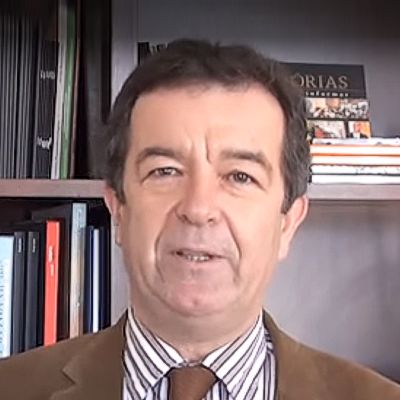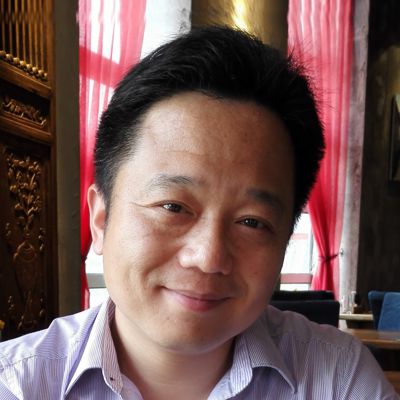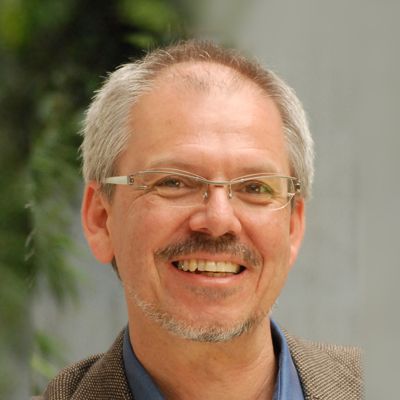How Can We Rely on Cyber-Physical Systems
with Thousands of Software Bugs?
 Henrique Madeira
Henrique Madeira
Professor, University of Coimbra
Cyber-physical systems (CPS) are made of software. Lots of it. Small embedded devices may easily reach millions of lines of code. Large scale CPS have billions. Even using the most skeptic bug density estimations for deployed software, there is no escape from the conclusion that most CPS have many thousands of residual bugs. Unfortunately, no one knows exactly where they are in the code, when they will reveal themselves, and, above all, what the consequences of their activation can be. In CPS with demanding safety requirements or exposed to security attacks (which may exploit residual bugs that may also represent security vulnerabilities), residual bugs represent a serious risk. Worse than that, it is not easy to estimate such risk.Hence, paraphrasing a famous Jim Gray’s question: Why are residual software bugs a serious threat to CPS and what can be done about it? Attempting to answer this question, the talk provides field data illustrating some key problems, surveys software reliability limits, discusses why it is not trivial to use classic fault tolerance techniques in many CPS, and proposes some futuristic scenarios that may help deal with the residual software bug problem.
Wednesday, April 11, 9:00AM, Pátio das Nações
Speaker biography:
Henrique Madeira is full professor at the University of Coimbra, where he has been involved in the research on dependable computing since 1989. His main research interests focus on experimental evaluation of dependable computing systems, including security evaluation and benchmarking, focusing on a wide range of systems, including CPS. He has participated in tens of projects funded by the European Commission and by the Portuguese Government and coordinated several of those projects. He was Vice-Chair of the IFIP Working Group 10.4 Special Interest Group on Dependability Benchmarking from the establishment of the group in 1999 until 2002. He was Program Co-Chair of the IEEE/IFIP DSN-PDS 2004 and LADC 2009, Conference Coordinator of the IEEE/IFIP DSN 2008, and has organized several Workshops and scientific events. Henrique Madeira also served as Vice-Rector at the University of Coimbra from 2009 to 2013 and was co-founder of the company Critical Software, SA.
Dependable Industrial Internet of Things
 Chenyang Lu
Chenyang Lu
Professor, Cyber-Physical Systems Laboratory, Washington University in St. Louis
IoT-driven control underpins numerous cyber-physical systems from Industrial Internet to smart cities. In contrast to best-effort IoT often found in consumer markets, there remain daunting challenges to develop IoT systems that must not only monitor but also control physical systems in a dependable fashion. We will highlight the dependability challenges caused by communication delays, data loss and resource constraints of IoT. We will further discuss cyber-physical co-design as a fundamental approach to achieve dependability in IoT-driven control systems.
Thursday, April 12, 9:00AM, Pátio das Nações
📷 photos
Speaker biography:
Chenyang Lu is the Fullgraf Professor at Washington University in St. Louis. His research interests include Internet of Things, embedded real-time systems, and cyber-physical systems. Professor Lu's current work focuses on real-time cloud, industrial cyber-physical systems and Internet of Medical Things. In the area of real-time cloud, he led the development of RT-Xen, a real-time hypervisor scheduler that has been incorporated in the popular Xen hypervisor. In the area of industrial cyber-physical systems, his research advanced real-time wireless networks and cyber-physical co-design for dependable wireless control systems. In the area of Internet of Medical Things, he piloted one of the world's first large-scale wireless sensor networks for clinical monitoring. Professor Lu served as Editor-in-Chief of ACM Transactions on Sensor Networks from 2011 to 2017 and currently chairs the IEEE Technical Committee on Real-Time Systems (TCRTS). He received the Ph.D. degree from University of Virginia in 2001. He is a Fellow of IEEE.
From Rags to Riches - Distributed Economic Model Predictive Control in Industry 4.0
 Frank Allgower
Frank Allgower
Director, Institute for Systems Theory and Automatic Control, University of Stuttgart
During the past decades model predictive control (MPC) has become a preferred control strategy for the control of a large number of industrial processes. Systems theoretic properties of MPC, like stability and robustness, are rather well understood by now, as are computational issues in connection with the MPC implementation.
With the vision of the smart factory of the future, generally termed Industry 4.0, the industrial environment, and thus the involved control tasks, are however undergoing a fundamental new orientation on the basis of the Cyber-Physical Systems and Internet of Things and Services paradigms. In the future all parts along the production chain will be equipped with embedded computing, communication and networking capabilities and are expected to interact in an optimal way towards the goal of a quality oriented, energy and resource efficient, save and reliable production process. Through decentralized optimal decision-making and an appropriate communication among the networked individual parts, the whole production process of the future is expected to operate optimally. The generation of economic value through control will step in the foreground while the stabilization of predetermined setpoints will not play the same role as it has in the past.
In this presentation an introduction to the state of the art in Model Predictive Control will be given and the challenges and opportunities of Industry 4.0 for the field of control are discussed. We will in particular investigate the potential impact of Model Predictive Control (MPC) for the fourth industrial revolution and will argue that some new developments in MPC, especially connected to distributed and economic model predictive control, appear to be ideally suited to have a potential impact in the new Industry 4.0 environment.
Friday, April 13, 9:00AM, Pátio das Nações
📷 photos
Speaker biography:
Frank Allgöwer is director of the Institute for Systems Theory and Automatic Control and professor in Mechanical Engineering at the University of Stuttgart in Germany. Frank's main interests in research and teaching are in the area of systems and control with a current emphasis on the development of new methods for optimization-based control, networks of systems, data-based control and systems biology. Frank received several recognitions for his work including the IFAC Outstanding Service Award, the IEEE CSS Distinguished Member Award, the State Teaching Award of the German state of Baden-Württemberg, and the Leibniz Prize of the Deutsche Forschungsgemeinschaft.
Frank is President of the International Federation of Automatic Control (IFAC) for the years 2017-2020. He was Editor for the journal Automatica from 2001 to 2015 and is editor for the Springer Lecture Notes in Control and Information Science book series and has published over 500 scientific articles. Since 2012 Frank serves a Vice-President of the German Research Foundation (DFG).